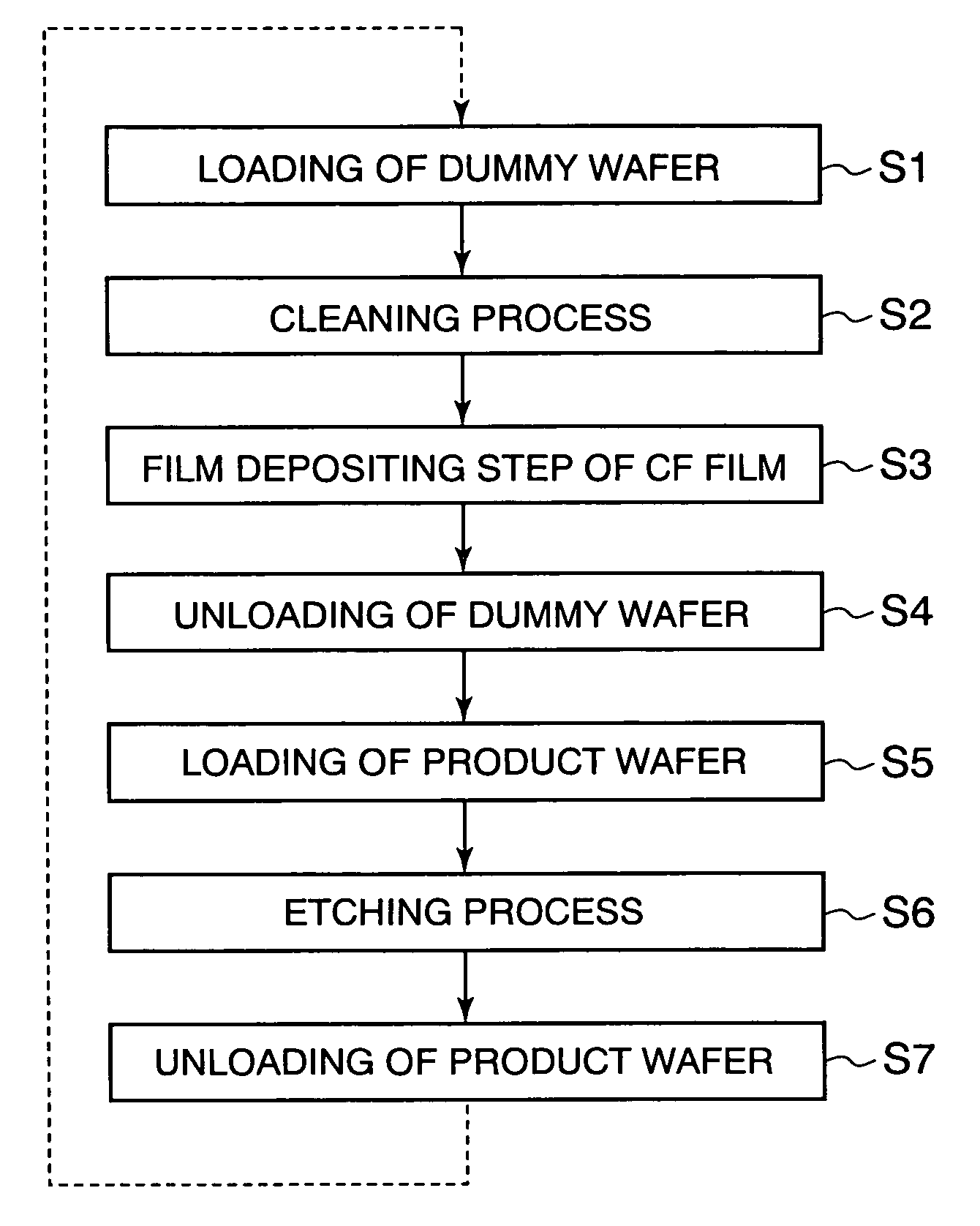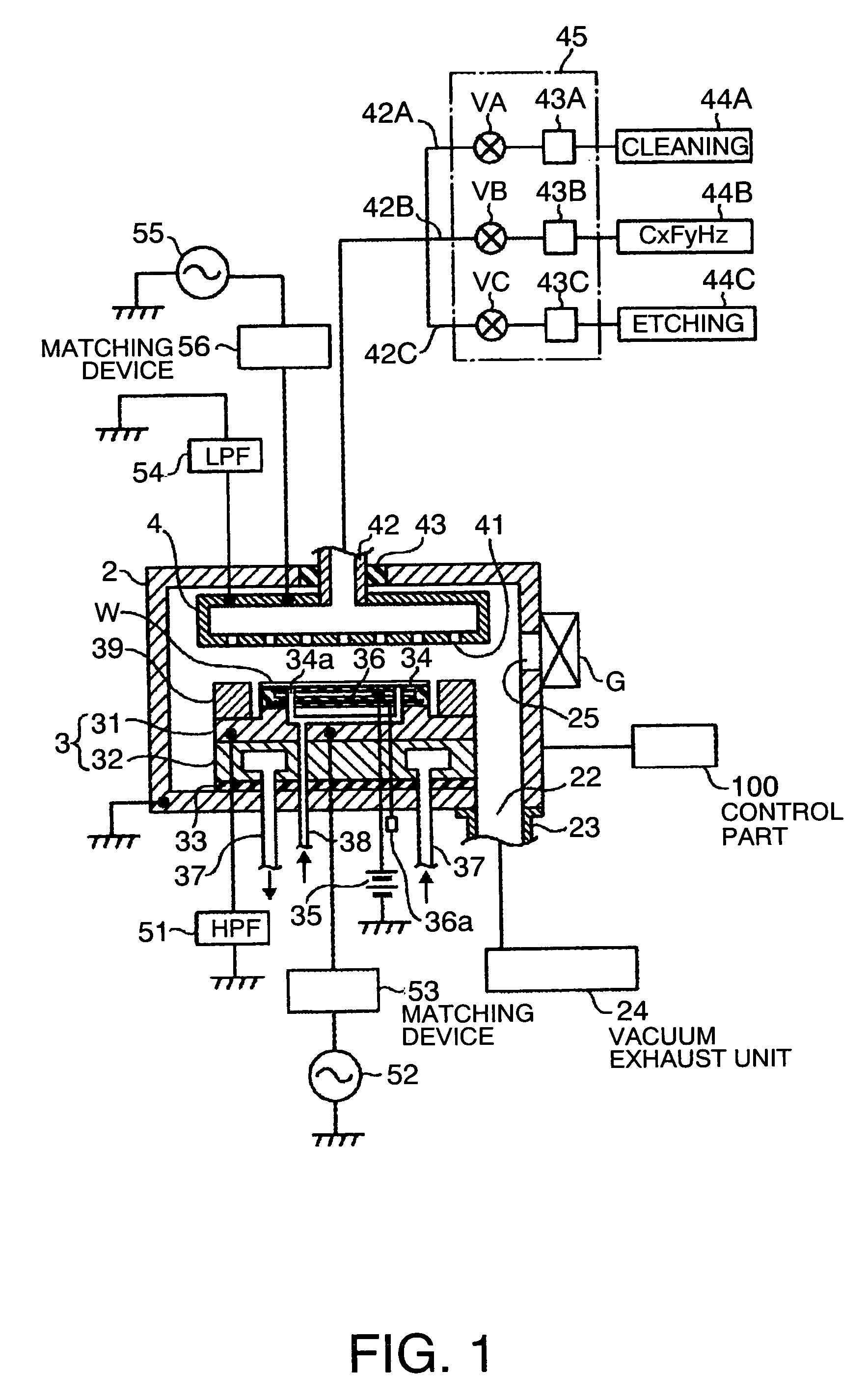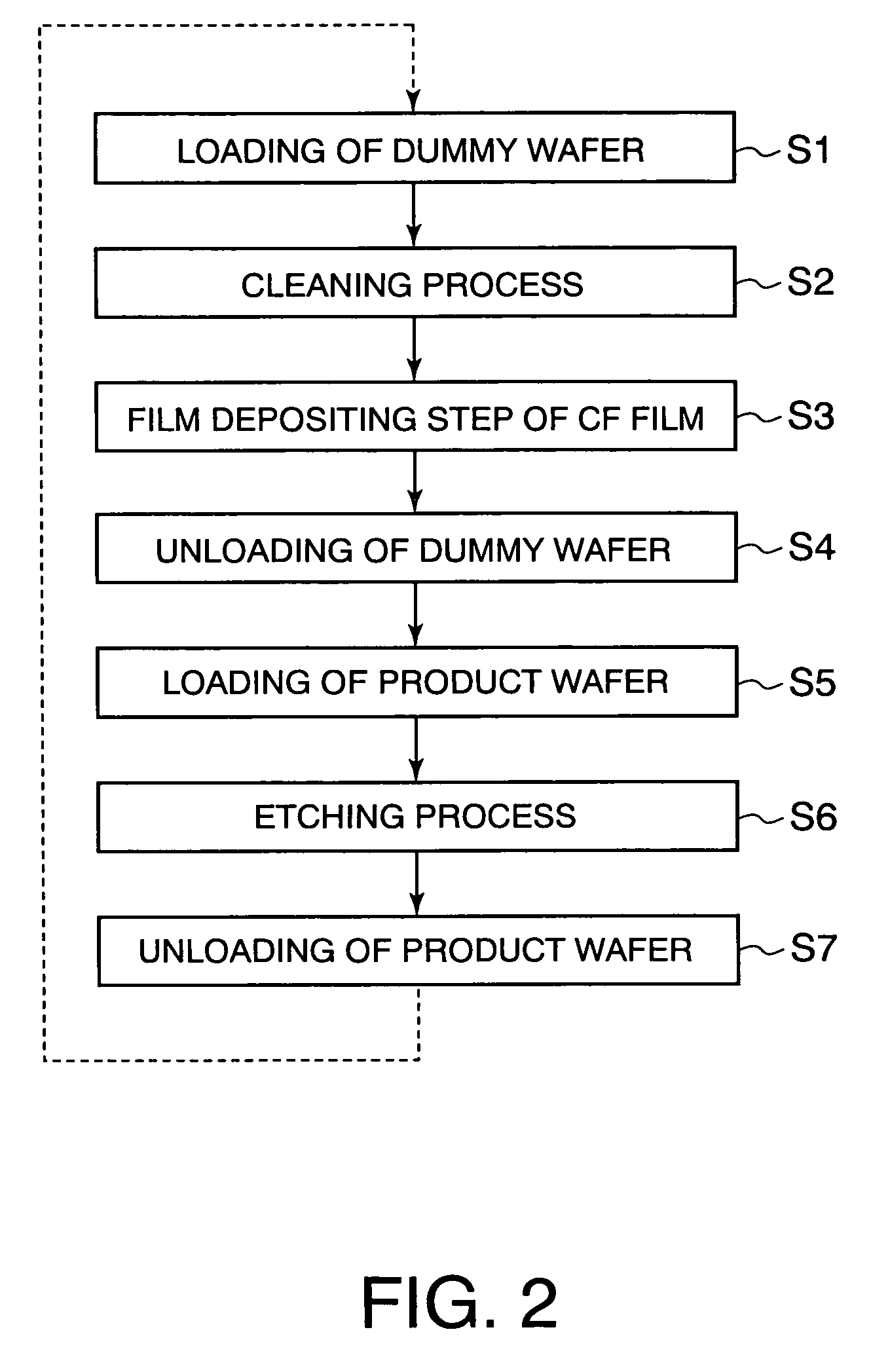Plasma etchimg method and plasma etching apparatus
a plasma etching and etchimg technology, applied in the field of plasma etching process techniques, can solve the problems of small variation amount achieved in the resultant etching-rate profile, insufficient, and affect the verticality of the etched shap
- Summary
- Abstract
- Description
- Claims
- Application Information
AI Technical Summary
Benefits of technology
Problems solved by technology
Method used
Image
Examples
examples
[0076]With the use of the plasma etching apparatus shown in FIG. 1, the cleaning process, the film depositing process of a CF film, and the etching process were performed in this order based on the steps S1 to S7 shown in FIG. 2. The etching process was performed to an SiN film formed on a wafer W. Regarding the cleaning process and the etching process, conditions common to the respective examples were employed. However, regarding the film depositing process of the CF film 21, a film depositing gas, a radiofrequency power, and a process period were varied as described below, while a process pressure of 26.6 Pa was unchanged.
[0077]With respect to each of the wafers W which had been etched in accordance with the above conditions, an average value of the etching rate, an in-plane uniformity of the etching rate, and the number of yttrium atoms on the wafer W were measured.
[0078]The average value of the etching rate was calculated from values measured at 33 measuring points located in th...
PUM
| Property | Measurement | Unit |
|---|---|---|
| frequency | aaaaa | aaaaa |
| frequency | aaaaa | aaaaa |
| pressure | aaaaa | aaaaa |
Abstract
Description
Claims
Application Information
 Login to View More
Login to View More - R&D
- Intellectual Property
- Life Sciences
- Materials
- Tech Scout
- Unparalleled Data Quality
- Higher Quality Content
- 60% Fewer Hallucinations
Browse by: Latest US Patents, China's latest patents, Technical Efficacy Thesaurus, Application Domain, Technology Topic, Popular Technical Reports.
© 2025 PatSnap. All rights reserved.Legal|Privacy policy|Modern Slavery Act Transparency Statement|Sitemap|About US| Contact US: help@patsnap.com



